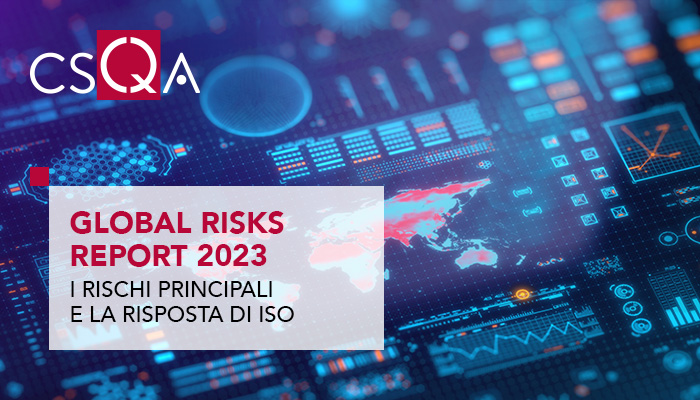
In the short term, inflation and rising cost of living, in the long term, the next 10 years, the failure to fight climate change and the collapse of ecosystems. These are the main threats identified by the World Economic Forum's Global Risks Report 2023 .
The Report of the World Economic Forum, now in its 18th edition, anticipates as usual the Davos Forum which will take place from 16 to 20 January and is based on a survey conducted among 1,200 experts and decision-makers from the various sectors of the global economy on the perception of risks at an international level, taking into consideration 5 risk categories: economic, environmental, geopolitical, social and technological.
The 2020s, the Report writes, got off to a disruptive start, from COVID-19 to war and ushered in a “ new set of food and energy crises, problems that decades of progress had sought to solve .”
2023 therefore presents a number of familiar but also new risks. In particular, the return of risks such as inflation, the cost of living and geopolitical clashes are not historically new, but they are for the current generation of politicians and leaders, risks that can be amplified by new emergencies such as:
- debt,
- low growth,
- de-globalization,
- a human decline after decades of progress
- and the growing pressure of climate change in an ever-shrinking window for the transition to a 1.5°C world.
So, what are the biggest risks the world is facing? The survey identifies the cost-of-living crisis as the most serious threat facing the next two years, closely followed by natural disasters and extreme weather events (they ranked number one in last year's report) and the geoeconomic clash.
In a longer-term, 10-year view , the top four risks are all environmental in nature , with the risk of failing to address climate change emerging as the largest set of risks (the top two are indeed climate change mitigation failure and adaptation policy failure), followed by biodiversity loss and ecosystem collapse, and natural disasters and extreme weather events. In this long-term view, the cost-of-living crisis falls completely out of the top 10, while the geoeconomic comparison drops to 9th place.
“ The landscape of short-term risk – said Saadia Zahidi, CEO of the World Economic Forum – is dominated by energy, food, debt and disasters. Those who are already the most vulnerable are suffering, and in the face of multiple crises, those who qualify as vulnerable are rapidly expanding, in both rich and poor countries. Climate and human development must be at the heart of global leaders' concerns, even as they battle the current crises. Cooperation is the only way forward”.
ISO actively participates in the World Economic Forum Annual Meeting 2023 in Davos . The annual meeting aims to provide a platform to engage in constructive and forward-looking dialogues and help find solutions precisely through public-private cooperation.
With over 24,000 published standards, ISO's existing contributions to these challenges are already extensive.
International standards underpin a common global approach to sustainable development issues , such as climate adaptation and mitigation, sustainable finance, trade, as well as numerous environmental and social benefits for communities around the world.
ISO Secretary General Sergio Mujica commented: “Collaboration is at the heart of what we do at ISO; We have always taken an inclusive approach to developing and drafting standards. This results in an approach that transcends national boundaries while delivering economic, environmental and social benefits.” (Sources: https://www.fondazionesvilupposostenibile.org; https://www.iso.org/ )